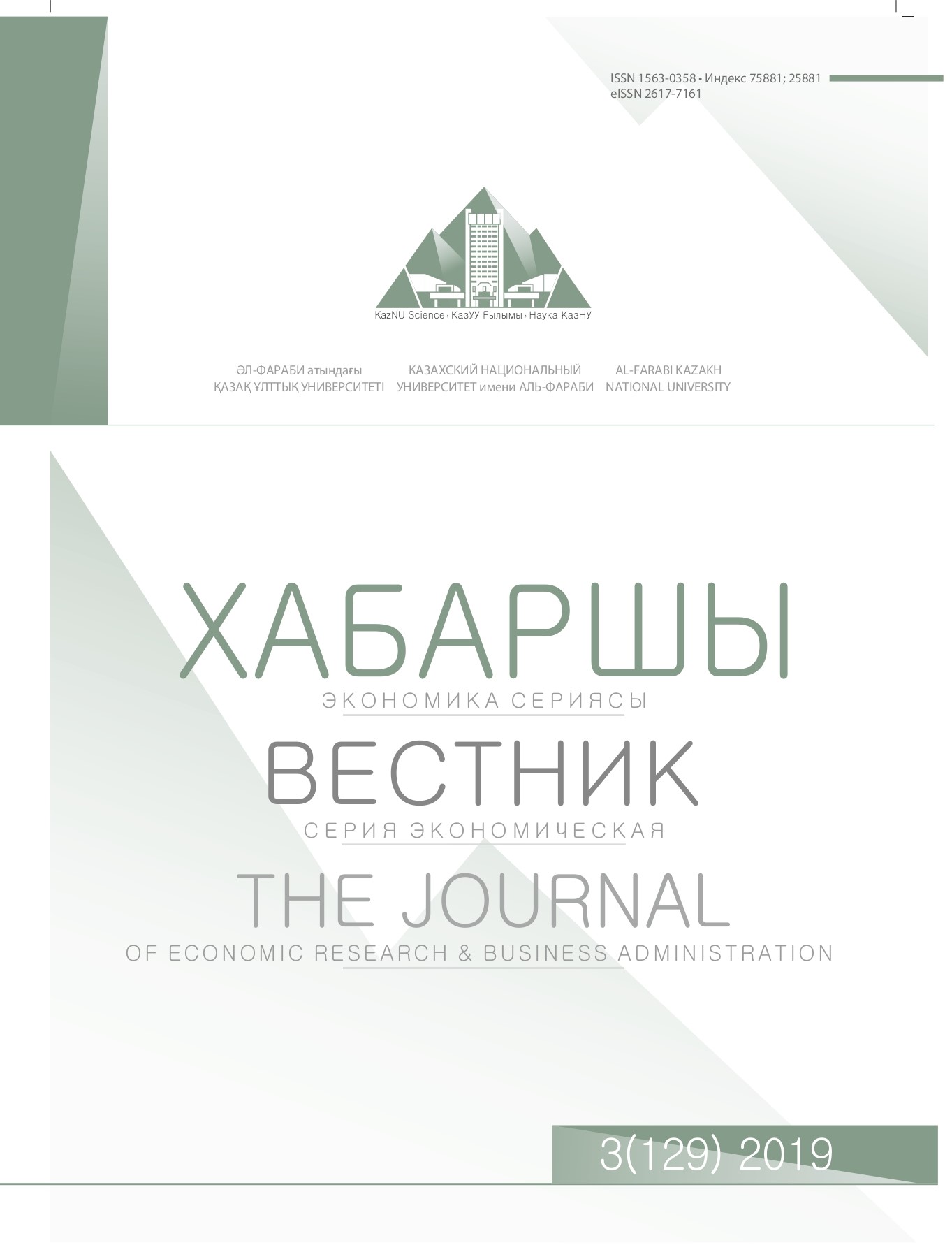THE ESTIMATION OF EFFICIENCY OF THE UNIVERSITY INNOVATION ACTIVITY: SYSTEMS OF INDICATORS AND BIBLIOMETRIC APPROACH
DOI:
https://doi.org/10.26577/be-2019-3-e2Abstract
The development of new forms of science and innovation at universities, as well as the interaction of higher education institutions with regional participants of the innovation system raises the question of evaluating the effectiveness of innovation as an independent phenomenon. Correct assessment of innovation activity helps the university to determine its strategic advantages, which is necessary in today’s conditions of tough competition, uncertainty of the external environment, the lack of all types of resources, globalization of education. The authors examined the differences in interpretations of the concepts of “effect” and “efficiency” in relation to the innovation activities of the university. The authors analyzed the methodological approaches to the integrated assessment of the innovation activities of the university, presented in modern studies on this topic. The authors paid attention to approaches based on the integral index of innovation activity, as well as measurements of various types of actions within the framework of innovation activity. Among the main groups of indicators, research productivity, research quality, academic results, etc. are highlighted. The authors also pay attention to alternative approaches to assessing innovation, including the bibliometric (scientometric) approach. This approach has been rapidly developing in recent decades and is actively used in the compilation of various university rankings. The authors have shown the main advantages of the bibliometric approach, as well as the possibilities of its use for evaluating the scientific activities of both the individual scientist and the university as a whole.













